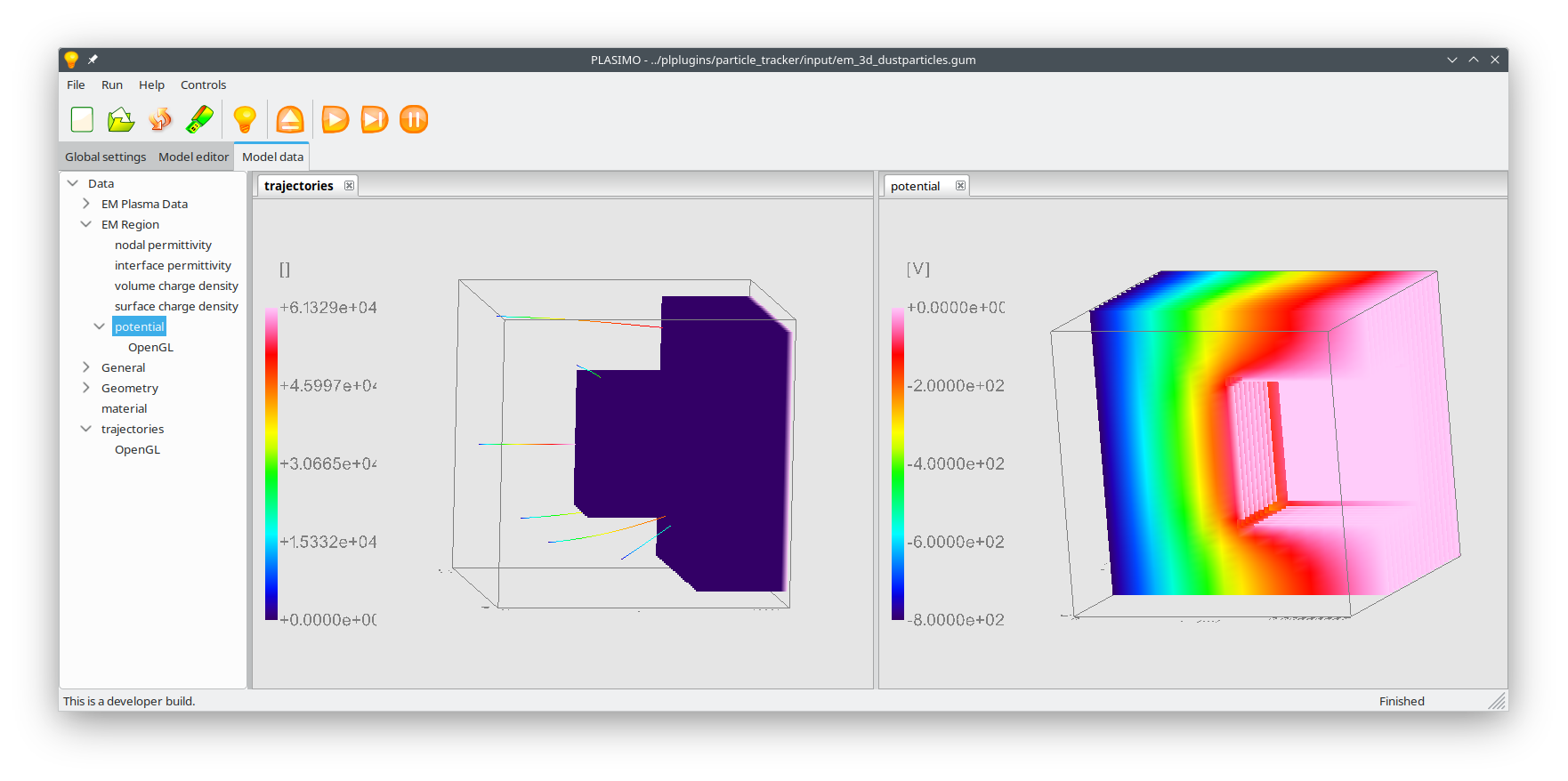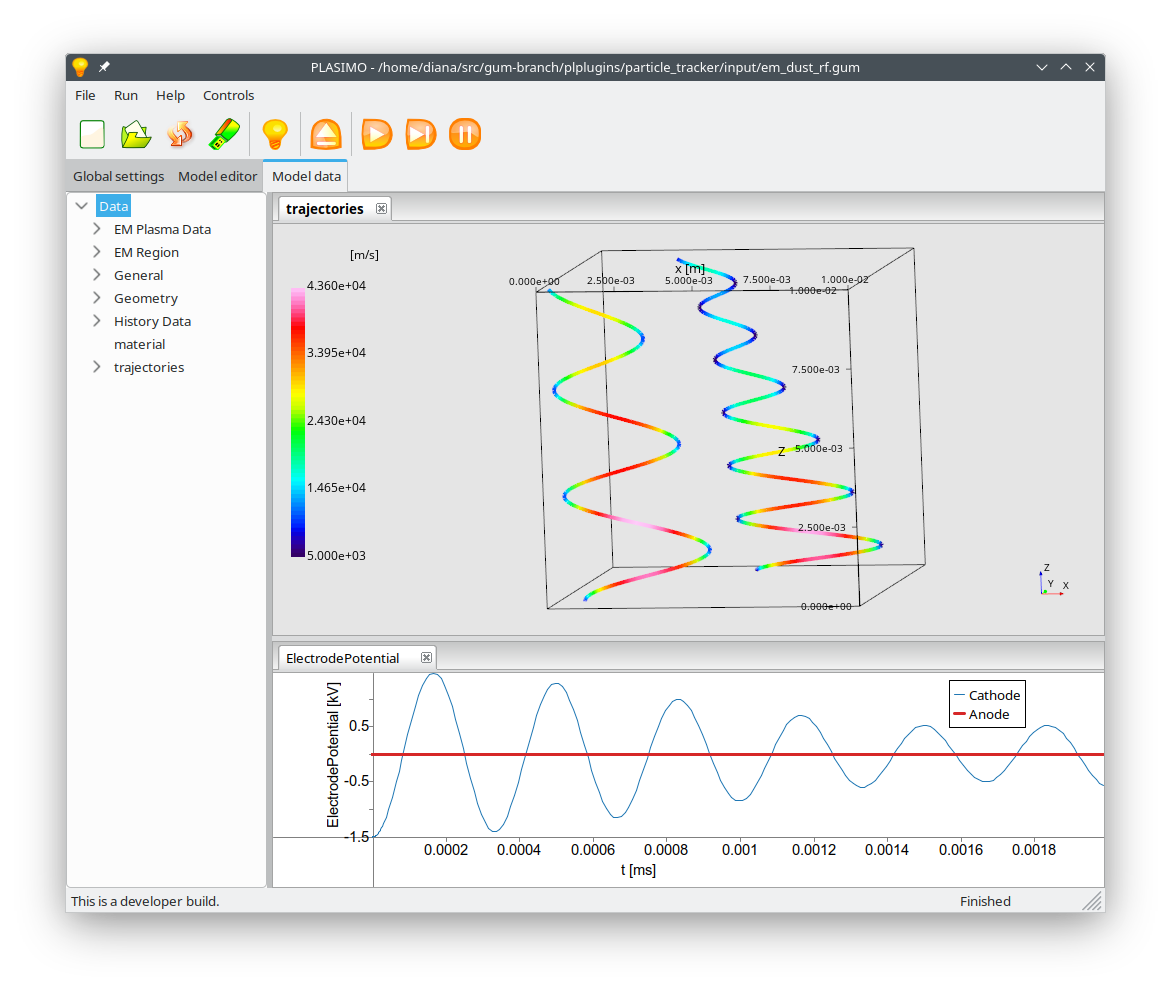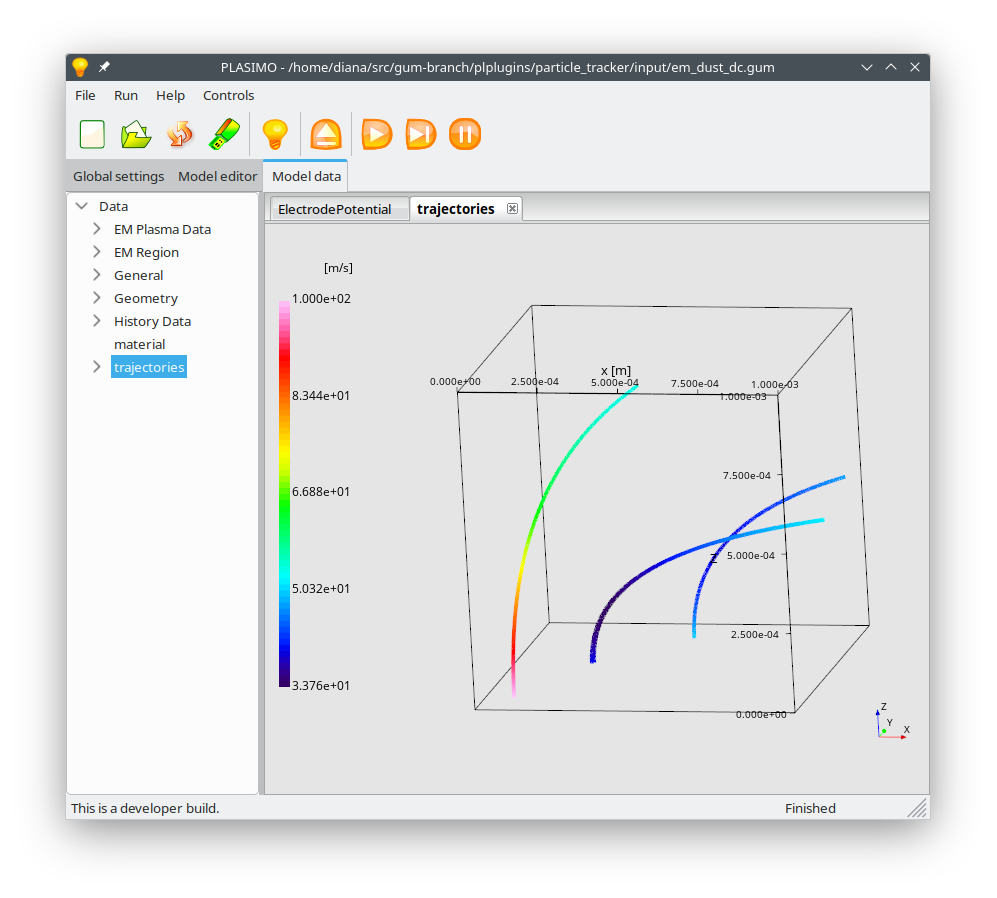PLASIMO's particle tracker model calculates an electric field, then follows the motion of a user-specified collection of test particles in that field. Currently, it is assumed that the electric field is not affected by the particle charge.
The electrostatic fields are calculated from the Poisson equation, based on user-specified applied voltages on the electrode materials. Optionally, volume and/or surface charge profiles can be specified.
NEW:
- Optionally, the effect of the particle charge on the electric field can optionally be taken into account
- Additional forces acting on the particle can be taken into account: neutral and ion drag, interparticle force and gravitation.
Example 1: Tracking of 'dust' particles
This example model shows tracking a number of 'dust' particles with composition (C64H64)20- in an electrostatic field. The particles are injected at user-specified locations with zero initial velocity.

Trajectories of particles moving in an electrostatic field. The left plot shows the trajectories and the right the calculated potential.
Example 2: Tracking of 'dust' particles in RF field
This example shows calculating the trajectories of two negatively charged
particles that are injected with initial velocities in the

Trajectories of particles moving in an RF field. Paralell plate electrodes are placed at left and right side. The top plot shows the trajectories and the bottom the applied amplitude-modulated voltage.
Example 3: Particle experiencing drag forces
This model calculates the trajectories of particles that are moving under the influence of drag forces. All applied voltages are set to zero, so that the electric force is zero. The particles are injected with (different) initial velocities in the z-direction. As they move they experience neutral drag, which slows down their velocity. An ion drag force is applied in the x-direction (horizontally, to the right), which causes the particles' trajectories to bend to the right. Interparticle and gravitational forces are also specified, but their contribution is negligible.

Trajectories of particles moving under the influence of drag forces.